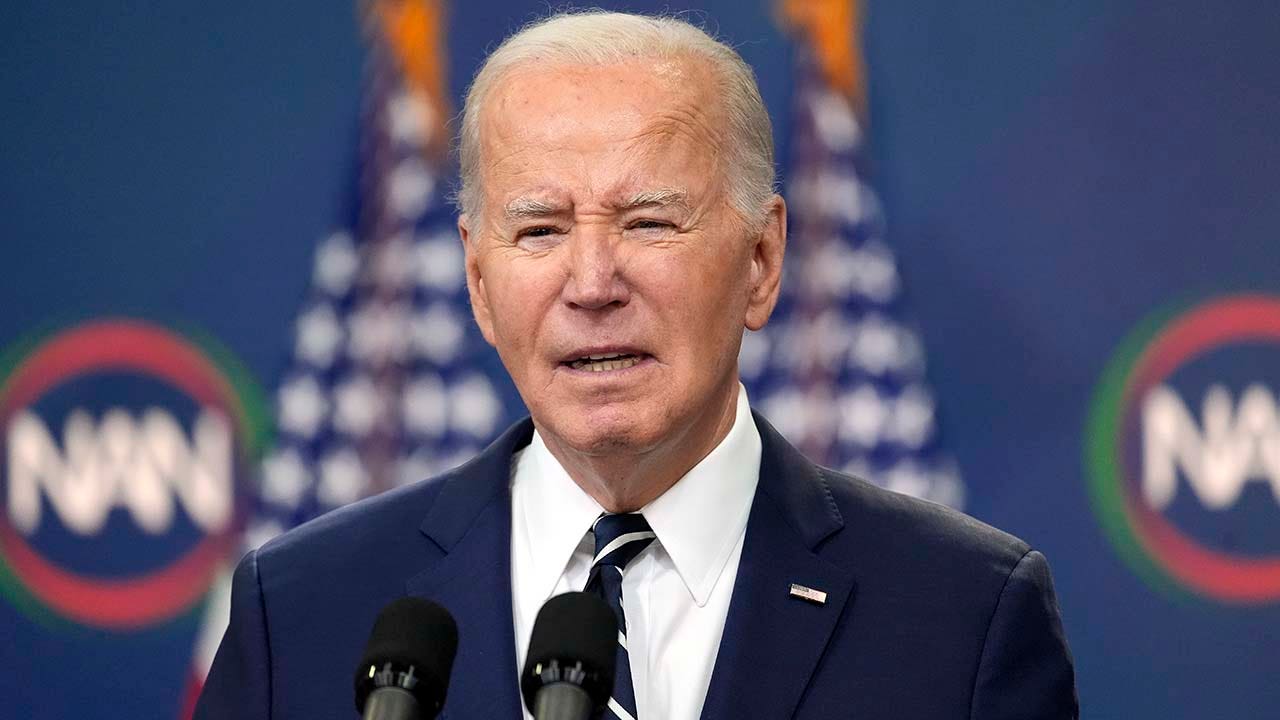Iowa
Ramaswamy faces curiosity and skepticism in Iowa after center-stage performance in GOP debate

PELLA, Iowa – Vivek Ramaswamy has charged back into Iowa, stoking curiosity and skepticism after his attention-grabbing performance in the first Republican presidential debate.
The charismatic 38-year-old businessman was met Friday by hundreds of GOP activists in small central cities near Des Moines, with more events planned in the coming days.
He is drawing new interest from Republicans who will participate in the nation’s first caucuses next year, but also apprehension from attendees at his events and pointed criticism from a former GOP governor. Much of the negative feedback is about his foreign policy ideas, notably his argument that the U.S. should stop providing arms and funding to Ukraine as it fights Russia’s invasion.
“I like that he’s young and energetic, and wants to tear the whole thing down,” said Thomas Bean, a 23-year-old who attended a morning event south of Des Moines. He was referring to Ramaswamy’s goal of reducing the federal bureaucracy by 75 percent.
“I like what he’s proposing. They’re not status quo,” said Bean, a public relations professional. “I just don’t know how much of what he’s proposing is realistic.”
Like Bean, several people who came to see Ramaswamy cited his youth, energy and outsider profile — punctuated by his criticism of and by better-known rivals Wednesday in Milwaukee. He drew larger than expected audiences on Friday, first to the Indianola breakfast restaurant and later a lunchtime event at a Pella brew pub.
Ramaswamy introduced himself as the son of poor Indian immigrants. But he spent most of his time speaking for what he describes as a frustrated generation seeking meaning in a nation that he says has lost its patriotism. The Ohio businessman has a background in investing and biotechnology.
“So what does it mean to be American? It means we believe in the ideals that set this nation into motion 250 years ago,” Ramaswamy said, drawing applause. “That you get ahead in this country, not on the color of your skin, but on the content of your character and your contributions.”
He mostly took a more inspirational tone than on Wednesday, when he confronted veteran politicians such as former New Jersey Gov. Chris Christie and Vice President Mike Pence.
Ramaswamy’s argument that the U.S. should suspend financial aid to Ukraine was met with sharp rebukes from Pence and former United Nations Ambassador Nikki Haley. Haley on Wednesday likened Ramaswamy’s position to siding with Russian President Vladimir Putin and thus “choosing a murderer.”
The crosstalk and jabs during the debate, Ramaswamy said, were like “some banter on the basketball court.”
Still, Ramaswamy’s campaign was seizing on his rising profile. His campaign said it raised $450,000 in the first hours after the debate. And he is scheduled to appear Sunday on NBC’s Meet the Press and CNN’s State of the Union.
Former Iowa Gov. Terry Branstad, who has not endorsed a candidate, said in an interview that Ramaswamy “brings some real enthusiasm and commitment to traditional values that Americans are really clamoring for,” but described his foreign policy as “a real problem.”
“I don’t think he’s really thought that through. And I thought that Nikki Haley really took him to task on that,” said Branstad, who served as ambassador to China under former President Donald Trump. “Rightly so.”
Janice Johnson, a 72-year-old from Indianola, Iowa, said she wanted someone from Ramaswamy’s generation to take the nation’s reins. But speaking before one of his events, Johnson described Ramaswamy as “sometimes a little too enthusiastic.”
Jim Jones, a former county GOP official from nearby Carlisle, said he viewed Ramaswamy with equal parts intrigue and apprehension.
“The intrigue is about, how does this guy come off appearing so strong and come from nowhere so quickly?” said Jones, 75. “The apprehension comes from his idea of abandoning Ukraine. That’s a little bit scary.”
Ramaswamy said Friday that he was trying to protect Ukraine by seeking an ending in which Russia would retain territory it took by force.
“I personally think that actually is the best, reasonable outcome for Ukraine. At least it comes out with its sovereignty intact — and saving a lot of Ukrainian lives in the process,” he told reporters when asked about the criticism. “That’s the best case, realistic scenario for Ukraine.”
Others with more vested interests have also piled on Ramaswamy.
Hal Lambert, a donor to Florida Gov. Ron DeSantis, questioned Ramaswamy’s credentials and reason for running, noting Ramaswamy’s frequent praise during the debate for Trump, who remains the heavy favorite for the nomination.
“Either he thinks Trump is going to go to prison or he thinks at 38 years old and with less experience than an average city councilman, he’d be better than ‘the greatest president of the 21st century,’” Lambert said. “Which is it? Either way he shouldn’t be running.”
Ken Cuccinelli, chairman of the pro-DeSantis Never Back Down super PAC, predicted last week that Ramaswamy would get more scrutiny as interest in him rises. Never Back Down issued a strategy memo before the debate urging DeSantis to attack Ramaswamy — something the Florida governor did not do, opting instead to largely stay out of the infighting between others on stage.
“So, I’m not backing off ‘Vivek the fake,’” Cuccinelli said, referencing a catchphrase that Never Back Down wanted DeSantis to use. “He’s the most inconsistent candidate in the field, and he’s getting no scrutiny.”
___
Associated Press writers Steve Peoples and Michelle Price contributed from New York and Bill Barrow contributed from Atlanta.
Copyright 2023 The Associated Press. All rights reserved. This material may not be published, broadcast, rewritten or redistributed without permission.

Iowa
Obituary for Mark A. Maas at Epworth

Iowa
How does Iowa football replace Kaleb Johnson? Carefully … and probably with multiple guys
Iowa
8 ways Trump’s ‘Big, Beautiful Bill’ will affect Iowans, from rural hospitals to biofuels

Trump signs his sweeping tax and spending bill on the Fourth of July
President Donald Trump signed his sweeping tax cut and spending bill on the Fourth of July.
- A KFF analysis found that Iowa will see federal Medicaid spending decrease between $8 billion and $14 billion over the next ten years as a result of the law.
- The law extends the 2017 tax cuts Trump signed during his first term in office, expands the child tax credit and permanently increases the estate tax exemption.
- One group estimates that 23,000 Iowans live in a household that could lose at least some SNAP benefits, and 15,000 of those people are at risk of losing their benefits entirely.
- Changes to clean energy tax credits give a boost to biofuels, while phasing out incentives for wind and solar power.
Big changes are coming to Iowans’ health care, taxes, nutrition assistance, energy generation and student loans — courtesy of President Donald Trump’s “One Big, Beautiful Bill Act.”
Trump signed the law July 4 in a ceremony at the White House after all six of Iowa’s Republican members of Congress voted for the legislation. And over the next few years, Iowans can expect its impact to affect their lives in a variety of ways.
The law makes permanent a set of 2017 tax cuts that Trump signed during his first term, as well as cutting taxes on tips and overtime pay and boosting spending on border security and the military.
It cuts Medicaid spending by about $1 trillion over a decade, which is expected to lead to 11.8 million people becoming uninsured, and cuts nearly $200 billion in spending on the Supplemental Nutrition Assistance Program, according to estimates from the nonpartisan Congressional Budget Office.
It also is projected to increase deficits by about $3.4 trillion over the next 10 years, according to the CBO.
Here are eight ways the law will affect Iowans.
Federal spending on Iowa Medicaid could decrease by billions
The law makes major changes to Medicaid, the federal program that provides health care to low-income and disabled Americans, and it reduces spending by nearly $1 trillion over 10 years.
A KFF analysis found that Iowa will see federal Medicaid spending decrease between $8 billion and $14 billion over the next 10 years as a result.
“This bill was not framed as a health care reform effort,” said Larry Levitt, executive vice president for health policy at KFF. “But it represents the biggest change to the health care system since the passage of the Affordable Care Act 15 years ago.”
The law will require states, which administer Medicaid, to perform eligibility checks twice a year instead of once annually. And states will have to set up systems to verify a person’s employment or exemption status.
The legislation requires “able-bodied” Medicaid recipients to work 80 hours a month, although some people will qualify for an exemption, such as students, caregivers or those with a disability.
Republicans say the changes will strengthen Medicaid by reducing fraud, waste and abuse.
The nonpartisan Congressional Budget Office has projected that 11.8 million Americans could lose Medicaid coverage over the next decade as a result of the law.
In Iowa, Democrats on the House Joint Economic Committee estimate that 113,979 people could lose health care coverage. That includes coverage through Medicaid and the Affordable Care Act.
Iowa’s Republican Gov. Kim Reynolds signed legislation earlier this year requiring new work requirements for tens of thousands of Iowans seeking Medicaid. But those requirements won’t kick in until the state gets a waiver approved by the Trump administration.
It’s not clear how the new federal law will affect Iowa’s law. Many of the provisions will be phased in over time, Levitt said.
“We’re not all going to wake up one morning and find millions more people uninsured,” he said.
The Congressional Budget Office has cautioned that it can’t know how states will respond to and implement these changes, causing major uncertainty in their cost estimates.
Rural hospitals brace for ‘profound’ negative effect
Rural hospitals are expected to be hit particularly hard by the Medicaid changes.
In Iowa, rural hospitals account for 67.8% of all community hospitals, according to KFF.
According to a KFF analysis, Iowa will see an estimated $4.45 billion reduction in federal Medicaid spending in rural areas over the next decade as a result of the law.
Iowa Hospital Association President and CEO Chris Mitchell said even a conservative estimate of the loss of funding, which he pegs at $3.5 billion, would have a “profound” negative effect on Iowa hospitals, “particularly ones in rural areas.”
Republicans included a $50 billion stabilization fund for rural hospitals to try to offset some of those negative effects. But experts say it’s far from enough.
Mitchell said the fund “doesn’t really move the needle in mitigating the long-term damages (of) these cuts.”
A June 12 letter from four Democratic U.S. senators identifies two Iowa hospitals that are at risk of closing or losing services from the law: MercyOne’s Newton Medical Center and the Manning Regional Healthcare Center.
Mitchell said he couldn’t speak to the data underlying that report.
“But, for the larger question, are there hospitals at risk today as a result of the passage of the ‘big, beautiful bill’? I would say yes,” he said.
Even though many of the law’s biggest Medicaid provisions won’t take effect immediately, Mitchell said hospitals already need to make decisions about how they will adjust their business models to account for future changes.
“Rural hospitals as we stand today are already operating on razor-thin margins,” he said. “… A lot of the questions are: Do we eliminate service? Do we reduce staff? Do we think about closure?”
Law extends tax cuts, expands child tax credit, creates new breaks for tips and overtime wages
The law extends the 2017 tax cuts Trump signed during his first term in office.
It keeps in place the seven tax brackets created in the Tax Cuts and Jobs Act, with a bottom rate of 10% for lower earners and a top rate of 37% for higher earners.
Starting in tax year 2025, the law permanently increases the standard deduction to $15,750 for single filers, $23,625 for heads of household and $31,500 for joint filers. There are adjustments for inflation after 2025.
Without the law, U.S. Sen. Chuck Grassley’s office said “the average Iowa household’s taxes would increase by $2,063.”
It also includes new tax breaks for tipped wages and overtime for tax years 2025 through 2028.
Workers will be able to deduct up to $25,000 in tips (so long as they “customarily and regularly” receive them, as servers do) and $12,500 in overtime pay.
And seniors 65 years old and older will see a $6,000 federal income tax deduction from 2025 through 2028, intended to offset Social Security taxes. The deduction tapers off for those making at least $75,000 per year.
That’ll compound benefits such as Iowa’s exemption of retirement income from the state income tax, Iowans for Tax Relief President Chris Hagenow said.
“We obviously have an older population in Iowa, and any benefit to senior citizens is going to be felt strongly in Iowa,” Hagenow said. “… It’s another benefit that can help retirees stay in their homes longer, stay in the state, and that can be a good thing for Iowa.”
The law expands the child tax credit from $2,000 to $2,200 and ties the amount to inflation so it will increase further in the future, according to Grassley’s office.
Plus, taxpayers can write off up to $40,000 in state and local taxes, or SALT, from their federal taxes. That’ll give a bigger tax deduction to Americans in high-tax states such as California.
“Sometimes that’s cast as a red-state-versus-blue-state thing, but property taxes have gotten so high in Iowa that that is going to provide relief for a growing number of Iowans,” Hagenow said.
Estate taxes exemptions ‘bolster farmers’ financial stability’
Beginning in 2026, the law permanently increases the estate tax exemption to $15 million. Under the Tax Cuts and Jobs Act, which had been set to expire, the exemption was $10 million.
The estate tax is beneficial for farmers passing land and expensive farm property down to their children.
“These measures bolster farmers’ financial stability, allowing them to invest in their operations and pass family farms to the next generation without the lingering fear of excessive tax penalties,” Iowa Agriculture Secretary Mike Naig said in a statement.
23,000 Iowans live in a household that could lose some SNAP benefits, estimate says
The law reduces federal spending on the Supplemental Nutrition Assistance Program by roughly $186 billion over a decade.
It expands work requirements for the program by extending them to people aged 55 to 64, as well as parents of children 14 and older, veterans, people experiencing homelessness and young adults who have aged out of the foster care system.
The left-leaning Center on Budget and Policy Priorities estimates that 23,000 Iowans live in a household that could lose at least some benefits, and 15,000 of those people are at risk of losing their benefits entirely.
About 264,000 Iowans were enrolled in SNAP as of March, according to the U.S. Department of Agriculture.
The law also puts states on the hook for more of the cost of running the SNAP program, and for the first time states could be responsible for paying for some SNAP benefits.
Previously, the federal government and states equally split the cost of running the program. But under the new law, states will pay 75% of administrative costs beginning in fiscal year 2027.
Luke Elzinga, chair of the Iowa Hunger Coalition, said that could cost Iowa $13 million to $15 million per year.
And the law says if states have a SNAP payment error rate above 6%, they must pay a percentage of the cost of SNAP benefits for the first time.
Iowa’s SNAP payment error rate — including overpayments and underpayments — recently rose to 6.14% in fiscal year 2024.
If the rate remains above 6%, Elzinga said the state could be on the hook for roughly $27 million in benefits costs beginning in fiscal year 2028. That amount could be higher if Iowa’s payment error rate rises above 8% or 10%.
Conversely, if Iowa drops its error rate below 6%, it would not be required to pay any SNAP benefit costs.
Clean energy tax credit changes boost biofuels, phase out wind and solar
Several changes to clean energy tax credits boost to biofuels, while phasing out incentives for wind and solar power.
The law extends the Clean Fuel Production Credit, known as 45Z, through 2029.
The tax credit can be claimed by producers of low-emission transportation fuel, including sustainable aviation fuel, as long as the fuel is produced from feedstock grown in the United States, Mexico and Canada.
It also extends the small agri-biodiesel tax credit through 2026 and boosts the amount from $0.10 to $0.20 per gallon. And the law raises reference prices for soybeans to $10 per bushel, with annual increases for inflation beginning in 2031.
The law phases out tax credits for wind and solar projects in two years, limiting companies from claiming the credits unless their projects are “placed in service” by Dec. 31, 2027.
Grinnell College will see tax cut instead of major increase under final law
While the law hikes tax rates on colleges with large endowments, one Iowa school will receive a tax cut instead.
The law raises the tax on endowments at private colleges and universities from a 1.4% rate set in 2017.
But the new law applies only to schools with more than 3,000 students, while the old law kicked in for schools with more than 500 students.
That means that Grinnell College, which has about 1,750 students and has been paying about $2.4 million per year in taxes under the 1.4% rate, will no longer see its endowment taxed.
An earlier version of the legislation, which passed the U.S. House on May 22, would have raised the endowment tax to 21%, which would have increased Grinnell’s tax bill to about $30 million per year.
“In those early days of the House bill, we were facing a pretty existential moment of going from paying $2.4 million to $30 million,” Grinnell College President Anne Harris said in an interview.
Grinnell, which has an endowment worth $2.67 billion as of June 30, 2024, is the only Iowa school affected by the law.
Harris said the college expects to use some of the savings from the tax cut to increase financial aid to students.
Grinnell relies on its endowment for more than 60% of its annual operating budget and provided students with $67 million in financial aid from the endowment last year.
Federal student loan borrowers to see big changes
Federal student loan borrowers will soon see major changes to loan options and repayment plans available.
By 2028, the law streamlines and phases out multiple federal student loan repayment plans, leaving new borrowers to choose one of only two repayment plans: a new Repayment Assistance Plan or a standard plan.
The standard repayment plan remains the same and structures the loan based on the amount borrowed, typically ranging from 10 to 25 years.
The Repayment Assistance Plan revamps income-driven repayment options, allowing borrowers to pay a percentage of their discretionary income, between 1% and 10%.
It also eliminates the Graduate PLUS Program, which allows graduate and professional school students to cover the full cost of attendance. Currently enrolled Graduate PLUS loan borrowers would be grandfathered in and could access these loans for the next few years until they graduate.
New graduate student loan borrowers will see lifetime loan caps of $100,000 ($20,500 per year) and $200,000 ($50,000 per year) for medical and law students.
Parent PLUS loans will now be capped at $65,000 and will not be eligible for repayment programs.
Starting with loans issued after July 1, 2027, borrowers who have lost jobs or face another financial hardship will no longer be able to pause payments.
“The changes the bill makes related to higher education are really going to target low- and middle-income class families,” said Betsy Mayotte, president of The Institute of Student Loan Advisors. “… It’s also going to affect higher education access and choice for those income levels.”
Mayotte said new loan borrowing limits likely will disproportionately affect nontraditional students, including working parents or those who work and can’t afford to attend school full-time.
Currently, students can access the full annual loan limit if they’re enrolled at least half-time. Under the law, annual loan limits will be prorated based on whether a student is enrolled full-time or half-time. The limit will be halved for half-time students.
“I think that’s going to bar a lot of the working parents and older borrowers that are currently attending school from being able to attend,” Mayotte said.
USA TODAY contributed to this report.
Brianne Pfannenstiel is the chief politics reporter for the Des Moines Register. Reach her at bpfann@dmreg.com or 515-284-8244. Follow her on X at @brianneDMR.
Stephen Gruber-Miller covers the Iowa Statehouse and politics for the Des Moines Register. He can be reached by email at sgrubermil@registermedia.com or by phone at 515-284-8169. Follow him on Twitter at @sgrubermiller.
Marissa Payne covers the Iowa Statehouse and politics for the Des Moines Register. Reach her by email at mjpayne@registermedia.com. Follow her on X, formerly known as Twitter, at @marissajpayne.
-

 Culture1 week ago
Culture1 week agoTry to Match These Snarky Quotations to Their Novels and Stories
-

 News6 days ago
News6 days agoVideo: Trump Compliments President of Liberia on His ‘Beautiful English’
-

 News1 week ago
News1 week agoTexas Flooding Map: See How the Floodwaters Rose Along the Guadalupe River
-
Business1 week ago
Companies keep slashing jobs. How worried should workers be about AI replacing them?
-
Finance1 week ago
Do you really save money on Prime Day?
-

 Technology1 week ago
Technology1 week agoApple’s latest AirPods are already on sale for $99 before Prime Day
-

 News5 days ago
News5 days agoVideo: Clashes After Immigration Raid at California Cannabis Farm
-

 Politics1 week ago
Politics1 week agoJournalist who refused to duck during Trump assassination attempt reflects on Butler rally in new book


















